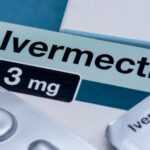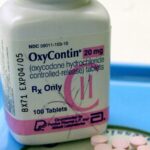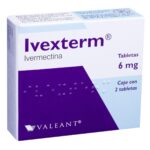What Are The Signs And Symptoms Of Ivermectin Overdose

What is ivermectin?
Ivermectin is an anti-parasite medication used to treat infections in the body that are caused by certain parasites. Ivermectin is approved for use in humans to treat intestinal strongyloidiasis and onchocerciasis.
According to drugs.com ivermectin is currently being investigated as a treatment for coronavirus SARS-CoV-2, which is the virus that causes COVID-19. The FDA has not approved ivermectin for use in treating or preventing COVID-19 in humans. The World Health Organization (WHO) recommends that ivermectin should only be used in patients with COVID-19, during clinical trials.
There seems to be a growing interest in ivermectin for the prevention or treatment of COVID-19 in humans. Certain animal formulations of ivermectin such as pour-on, injectable, paste, and “drench,” are approved in the U.S. to treat or prevent parasites in animals. For humans, Ivexterm (ivermectin) tablets are approved at very specific doses to treat some parasitic worms, and there are topical (on the skin) formulations for head lice and skin conditions like rosacea.
However, the FDA said it has received multiple reports of patients who have required medical attention, including hospitalization, after self-medicating with ivermectin intended for livestock with one reported fatality in new Mexico.
What special precautions should I follow?
Before taking ivermectin,
• tell your doctor and pharmacist if you are allergic to ivermectin or any other medications.
• tell your doctor and pharmacist what other prescription and nonprescription medications, vitamins, nutritional supplements, and herbal products you are taking or plan to take. Be sure to mention if you are taking medications for anxiety, mental illness or seizures; muscle relaxants; sedatives; sleeping pills; or tranquilizers. Your doctor may need to change the doses of your medications or monitor you carefully for side effects.
• tell your doctor if you have or have ever had meningitis, human African trypanosomiasis (African sleeping sickness; an infection that is spread by the bite of the tsetse fly in certain African countries), or conditions that affect your immune system, such as human immunodeficiency virus (HIV).
• tell your doctor if you are pregnant, plan to become pregnant, or are breast-feeding. If you become pregnant during your treatment with ivermectin, call your doctor.
• ask your doctor about the safe use of alcoholic beverages while you are taking ivermectin.
• if you are taking ivermectin for onchocerciasis, you should know that you may experience dizziness, lightheadedness, and fainting when you get up too quickly from a lying position. To avoid this problem, get out of bed slowly, resting your feet on the floor for a few minutes before standing up. If you are taking ivermectin for strongyloidiasis and have had loiasis (Loa loa infection with a type of worm that causes skin and eye problems) or if you have ever lived in or traveled to areas of West or Central Africa where loiasis is common, you should know that you may have a serious reaction. Call your doctor immediately if you experience blurred vision, head or neck pain, seizures or difficulty walking or standing.
What are the side effects of ivermectin?
Ivermectin may cause side effects. Tell your doctor if any of these symptoms are severe or do not go away:
• dizziness
• loss of appetite
• nausea
• vomiting
• stomach pain or bloating
• diarrhea
• constipation
• weakness
• sleepiness
• uncontrollable shaking of a part of the body
• chest discomfort
If you are taking ivermectin to treat onchocerciasis or COVID 19, you may also experience the following side effects. Tell your doctor if any of these symptoms are severe or do not go away:
• swelling of the eyes, face, arms, hands, feet, ankles, or lower legs
• joint pain and swelling
• painful and swollen glands of the neck, armpit or groin
• rapid heartbeat
• eye pain, redness, or tearing
• swelling of the eye or eyelids
• abnormal sensation in the eyes
Some side effects can be serious. If you experience any of these symptoms, call your doctor immediately:
• fever
• blistering or peeling skin
• rash
• hives
• itching
Ivermectin may cause other side effects. Call your doctor if you have any unusual problems while taking this medication.
What are the signs and symptoms of ivermectin overdose?
Clinical effects of ivermectin overdose include gastrointestinal symptoms such as nausea, vomiting, and diarrhea. Overdoses are associated with hypotension and neurologic effects such as decreased consciousness, confusion, hallucinations, seizures, coma, and death. Ivermectin may potentiate the effects of other drugs that cause central nervous system depression such as benzodiazepines and barbiturates.
If you or someone you know is showing signs of an ivermectin overdose, call 911 to get poison control help online or call 1-800-222-1222





